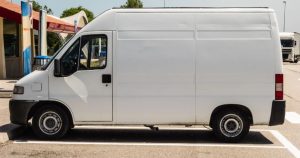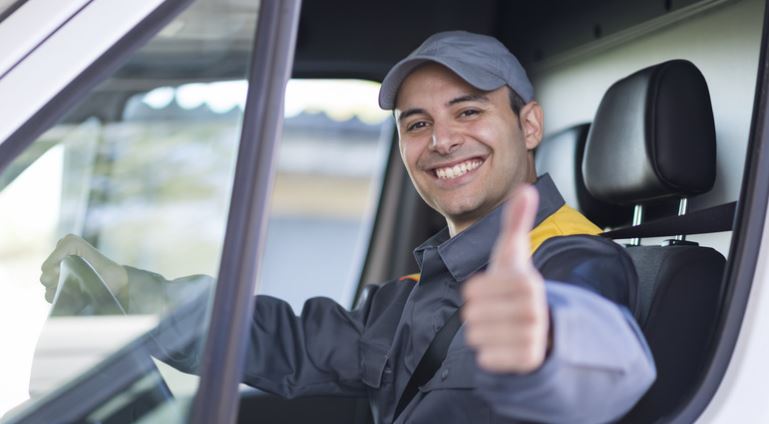Table of Contents
ToggleManaging van-related expenses is a crucial aspect of self-employment, as it can significantly impact your business’s finances.
If you’ve ever wondered how much you can claim for your van as a self-employed individual, this article has you covered.
In this guide, we explore key topics such as deductible expenses, simplified methods, and HMRC guidelines. By understanding these areas, you can maximise your claims and stay compliant.
What Are the Key Expenses I Can Claim for My Van?

When you’re self-employed, a van used for business purposes can offer significant tax relief. Understanding the key expenses you can claim ensures that you maximise your deductions while staying compliant with HMRC rules.
Here’s a breakdown of the main expenses you can claim:
- Fuel Costs: If your van is used exclusively for business, you can claim back all the fuel expenses. For vans used partially for personal reasons, only the business-related portion can be claimed.
- Repairs and Maintenance: Regular servicing, MOT tests, and repairs are all deductible if they are necessary for keeping the van operational for business use.
- Insurance Premiums: Business insurance policies specifically for vans can be claimed as part of your tax-deductible expenses.
- Parking Fees and Tolls: Costs incurred while using your van for work-related journeys, such as toll roads or parking fees, are eligible for claims. However, fines are not deductible.
- Depreciation: If you purchased your van, you might claim through capital allowances, such as the Annual Investment Allowance (AIA) or writing down allowances, to account for its depreciation.
Each of these categories requires proper documentation, such as receipts and logs, to ensure accuracy in your tax returns. By organising your records, you can streamline your claims process and avoid penalties.
How Much Can I Claim for My Van Self-Employed?
The amount you can claim for your van as a self-employed individual depends on how the van is used and the type of expenses incurred. For vans used solely for business purposes, you may claim:
- Purchase Costs: Full cost through capital allowances like the Annual Investment Allowance (AIA).
- Running Costs: Expenses such as fuel, insurance, repairs, and maintenance are claimable in proportion to business use.
- Mileage Allowance: Alternatively, claim a flat rate of 45p per mile for the first 10,000 miles and 25p per mile thereafter if using simplified expenses.
- Lease Payments: If you’re leasing the van, you can claim the cost of the lease as a business expense. The lease payments can be claimed based on the percentage of business use, and VAT may also be reclaimable on lease payments if you’re VAT registered.
- Depreciation: If you purchase the van outright, the depreciation can be claimed through capital allowances over several years, spreading the cost of the van. However, you cannot claim depreciation directly; instead, you claim capital allowances as part of the van’s business use.
- Interest on a Loan: If you took out a loan to buy the van, you can claim the interest on that loan as a business expense, proportionate to the percentage of business use.
If the van has mixed-use (business and personal), claims must be proportional to the business use percentage. Accurate record-keeping is essential for compliance with HMRC guidelines.
Can I Deduct the Full Cost of Purchasing a Van?

If you’re self-employed and purchase a van solely for business purposes, you may be eligible to deduct a significant portion of the cost from your taxable income.
HMRC allows self-employed individuals to claim tax relief on business assets, including vans, under specific rules.
- Capital Allowances: You can claim the cost of the van through capital allowances. Most self-employed individuals opt for the Annual Investment Allowance (AIA), which allows you to deduct the entire purchase cost of the van (up to a set limit) in the year it was bought. For the 2023/2024 tax year, the AIA limit is £1 million.
- Writing Down Allowances: If the van isn’t eligible for full deduction under the AIA, you can claim a percentage of its cost each year through writing down allowances.
- Second-Hand Vans: The same rules generally apply to used vans as long as they are purchased for business use.
- Leased Vans: If you lease a van, you can claim the lease payments as an expense instead of using capital allowances.
How Do Simplified Expenses Work for Vans?
For self-employed individuals using vans, simplified expenses can offer a straightforward way to claim vehicle costs without keeping detailed records of actual expenses.
Simplified expenses use flat rates set by HMRC to calculate allowable costs, making the process less time-consuming and more transparent.
- Eligibility for Simplified Expenses: This method is available to sole traders and business partnerships without corporate partners. It’s particularly suitable for those who use their vans for both business and personal purposes.
- Flat Rate Mileage Allowance: Instead of calculating actual costs like fuel, insurance, and maintenance, you can use HMRC’s flat rate of 45p per mile for the first 10,000 miles and 25p per mile thereafter. These rates are designed to cover all operating costs.
- Exclusions: Simplified expenses cannot be used if you have claimed capital allowances for the van. It’s an either-or choice, meaning you’ll need to decide which method offers greater tax benefits.
- Record-Keeping: You’ll still need to maintain accurate mileage logs to support your claims. Include details such as the date, journey purpose, starting and ending odometer readings, and total miles travelled.
What Is the Mileage Allowance for Self-Employed Individuals?

The mileage allowance is a simplified way for self-employed individuals to claim tax relief on the use of their vans for business purposes.
This allowance covers running costs, such as fuel, maintenance, and wear and tear, without requiring detailed receipts or invoices for individual expenses.
1. Standard HMRC Mileage Rates
- First 10,000 miles: You can claim 45p per mile.
- After 10,000 miles: The rate drops to 25p per mile.
These rates are designed to encompass all van-related costs, making the claims process straightforward.
2. Business Use Only
To qualify, the mileage claimed must be for business purposes. Personal or commuting miles cannot be included. You’ll need to keep a detailed mileage log that records:
- Date of the journey
- Start and end locations
- Purpose of the trip
- Total miles driven
3. Advantages of Using Mileage Allowance
- Simplifies record-keeping by eliminating the need to track every individual expense.
- Ideal for vans with moderate business usage.
4. Limitations
- If your van’s actual running costs (fuel, repairs, insurance) exceed the allowance rates, you might save more by calculating actual expenses instead of using the mileage allowance.
- You cannot switch between simplified expenses and actual costs mid-tax year.
What Are the Rules for Claiming Van Running Costs?
When you’re self-employed, claiming the running costs of a van used for business can significantly reduce your taxable income. However, HMRC has specific rules to ensure claims are fair and accurately reflect the van’s use.
1. Eligible Running Costs: You can claim the following expenses if the van is used for business:
- Fuel: Costs incurred during business trips. For vans with dual usage (personal and business), only the business-related fuel costs can be claimed.
- Repairs and Maintenance: Expenses for servicing, MOTs, and essential repairs are deductible.
- Road Tax: The annual vehicle tax payment is a claimable expense.
- Insurance: Policies that specifically cover business use of the van are eligible for tax relief.
- Breakdown Cover: Costs for roadside assistance packages are deductible if the van is used for business purposes.
2. Dual Usage of Vans: If the van is used for both personal and business purposes, only the business proportion of the running costs can be claimed. This requires accurate record-keeping, such as a mileage log, to calculate the split.
3. Documentation Requirements:
- Keep all receipts, invoices, and logs to support your claims.
- HMRC requires evidence to demonstrate that the claimed expenses are directly related to business use.
4. Non-Claimable Costs: Fines, penalties, or costs related to personal use cannot be claimed under any circumstances.
How Does HMRC Define Business Use for Vans?

To claim tax relief on a van, HMRC requires that its use be primarily for business purposes. Understanding what qualifies as “business use” is essential to ensure compliance and maximise allowable deductions.
1. Definition of Business Use:
- Business use refers to any activity directly related to the operation of your self-employed business. This includes tasks such as transporting goods, travelling to job sites, meeting clients, or delivering services.
- The van must be essential to your business operations rather than serving as a convenience.
2. Exclusions for Personal Use:
- Commuting between home and your regular workplace is generally considered personal use and not claimable.
- Personal errands or leisure trips taken in the van do not qualify for tax relief.
3. Dual Use of Vans: If the van is used for both business and personal purposes, HMRC requires that only the business portion of expenses be claimed. Accurate mileage logs are necessary to calculate the percentage of business versus personal use.
4. Special Exemption for Vans: Vans are considered commercial vehicles, not cars, which makes them subject to different rules. For instance, occasional personal use (e.g., driving home after a business trip) may be allowed, provided it is incidental and not habitual.
5. Documentation and Evidence: Maintain records of journeys, including dates, purposes, and destinations, to demonstrate the van’s business use. This can protect you during an HMRC audit.
Can I Claim Tax Relief on Maintenance and Insurance Costs?
For self-employed individuals, van maintenance and insurance costs are necessary business expenses that qualify for tax relief. Claiming these costs accurately ensures compliance with HMRC rules while reducing your taxable income.
1. Maintenance Costs:
Eligibility: Expenses for maintaining your van in a roadworthy and operational state are deductible. This includes:
- Regular servicing
- MOT tests
- Repairs (e.g., replacing tires, fixing engines)
Business Use Proportion: If the van is used for both personal and business purposes, only the portion related to business use is deductible. Keep detailed logs of business-related trips to calculate the claimable percentage.
2. Insurance Costs:
- Business Insurance Policies: Policies specifically covering the van for business activities can be claimed in full if the van is used exclusively for work.
- Dual-Purpose Insurance: If the insurance covers both business and personal use, only the business-related percentage is eligible for tax relief.
3. Exclusions:
- HMRC does not allow claims for maintenance or insurance costs incurred for personal trips.
- Premiums for add-ons unrelated to business, such as luxury features or personal modifications, are non-deductible.
4. Documentation Requirements:
- Retain receipts, invoices, and policy details as proof of expenses.
- Maintain a clear record of the van’s usage to support your claim.
Conclusion
Claiming expenses for your van as a self-employed individual can be a straightforward process if you understand HMRC’s rules and keep accurate records.
Whether you choose simplified methods or calculate actual costs, the right approach depends on your van’s usage and business needs.
By implementing the strategies discussed in this guide, you can optimise your tax relief and ensure compliance with HMRC requirements. A well-organised system for tracking expenses can save time and money, making tax season far less stressful.
FAQs
Can I claim the full cost of my van if it’s for business use?
Yes, if your van is used exclusively for business, you can claim the full cost under capital allowances or the Annual Investment Allowance.
What happens if my van is used for personal use as well?
For dual-use vans, you can only claim the percentage of expenses that relates to business usage. Keep a mileage log for accuracy.
Are fines and penalties related to my van deductible?
No, HMRC does not allow you to claim fines, penalties, or parking tickets as deductible expenses.
Can I switch between simplified expenses and actual costs?
You can choose either method at the start of a tax year but cannot switch between them mid-year. Evaluate which method offers the most relief annually.
Is breakdown cover a claimable expense?
Yes, breakdown cover is deductible if the van is used for business purposes. Ensure it is proportionate to business use if the van is dual-purpose.
How do I calculate the business use percentage of my van?
Divide the total business miles driven by the total miles for the year. Apply this percentage to eligible expenses to determine your claim.
Are second-hand vans eligible for tax relief?
Yes, second-hand vans qualify for the same reliefs as new ones, provided they are used for business purposes.




